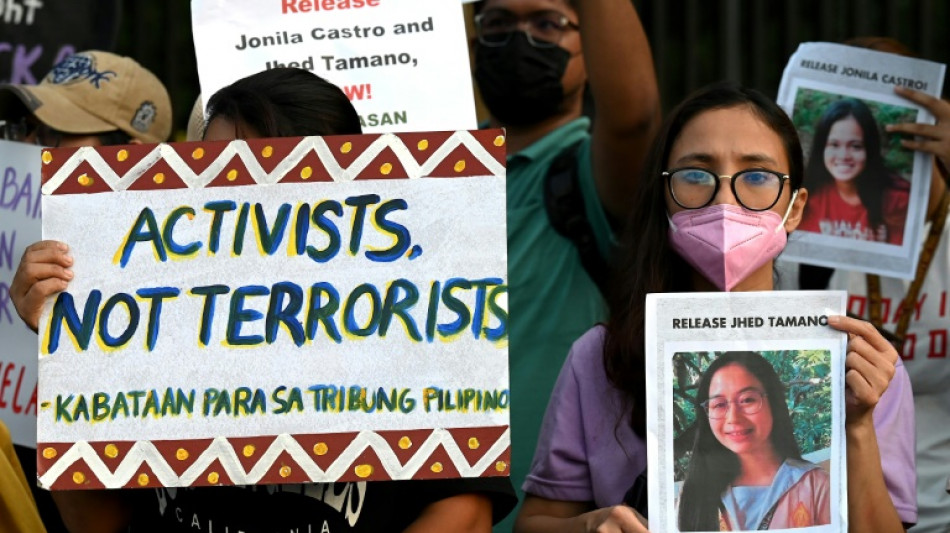

Nearly 200 land and environment defenders killed in 2023, says NGO
Nearly 200 environmental and land defenders around the world were murdered in 2023, with Colombia once again the deadliest place for activists, watchdog Global Witness said in a report Tuesday.
The report also sounds the alarm on a "crackdown on environmental activists across the UK, Europe and the US", warning "laws are increasingly being weaponised against defenders".
The annual report found Latin America remains the most dangerous part of the world for environmental and land defenders, accounting for 85 percent of the 196 murders documented last year.
The majority were concentrated in just four countries: Colombia, Brazil, Honduras and Mexico.
The group documented 79 murders in Colombia alone -- the highest figure recorded in any country since Global Witness began its annual review in 2012.
Most occurred in several of the country's southwestern regions, and organised crime groups are suspected of carrying out at least half of the murders.
Colombia will host this year's COP16 meeting to discuss the Convention on Biological Diversity, but "violence against human rights defenders and social leaders appears to be increasing", Global Witness said.
The report also highlighted the toll in Honduras, which recorded 18 murders, the most per capita. Among them was a father killed alongside his 15-year-old child.
- Critical issue -
In Asia, the Philippines continued to be the most dangerous place for environmental and land protection, with 17 murders, and Global Witness highlighted a growing trend of abductions across the region.
This "has emerged as a critical issue, reflecting broader systemic efforts by power holders to suppress dissent and maintain control over land and resources", it said.
Among those affected were Jonila Castro and Jhed Tamano, two young activists opposed to land reclamation projects in Manila Bay in the Philippines.
They have accused the military of abducting them, though authorities claim the women belonged to a communist insurgency and had sought help after leaving the movement.
"Since our release, the threats have continued," the pair said in the report.
"The government is filing trumped-up and malicious charges against us in an attempt to prolong their intimidation tactics."
In Africa, Global Witness recorded just four deaths, but warned the figure was likely a "gross underestimate" given the challenge of collecting information.
Elsewhere, the group warned that governments and corporations are increasingly wielding the law to suppress environmental activism.
It pointed to legislation in Britain and United States allowing harsher penalties for protesters and activists facing "draconian levels of surveillance" in the European Union.
In Britain it highlighted the case of activist David Nixon, who served four weeks in jail after defying a judge's order barring him from using climate change as a defence.
"We should be allowed to mention the climate crisis wherever we go, especially in front of a jury," he told AFP.
Global Witness urged "decisive action" from governments to protect defenders.
"Activists and their communities are essential in efforts to prevent and remedy harms caused by climate damaging industries," said the report's lead author Laura Furones.
"We cannot afford to, nor should we tolerate, losing any more lives."
M.Scott--NG



